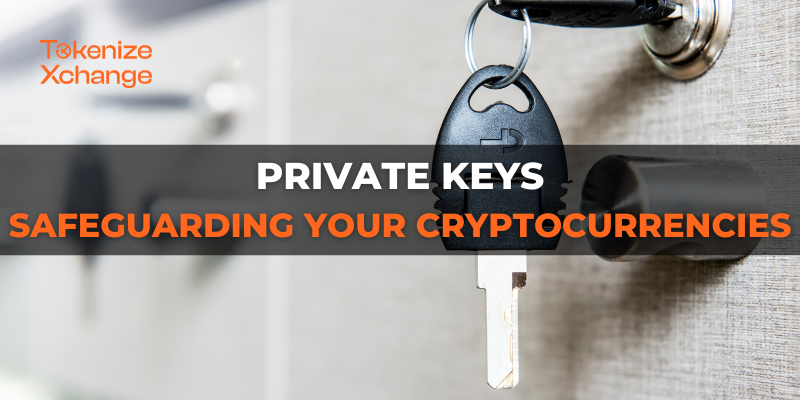
Much like how we entrust physical keys to safeguard our homes, cars, and prized possessions, the world of cryptocurrency has its own set of keys that act as the guardians of your digital wealth. But unlike the piece of metal we use to unlock access to our physical assets, in the world of cryptocurrencies, we rely on a different kind of key – a unique combination of numbers and letters. These digital keys form the very foundation of security for your online assets, and in this article serves to help you understand the workings of these cryptographic guardians – your private keys.
What Are Private Keys?
Private keys are at the heart of cryptocurrency security. Imagine them as a digital representation of a physical key that you use to unlock a personal vault. This digital key is a lengthy and unique combination of numbers and letters, and it’s the linchpin of security for your cryptocurrency holdings.
When you own cryptocurrencies, they aren’t stored in a physical location; instead, your ownership is recorded on a decentralized ledger known as the blockchain. The private key, a secure digital code, allows you to access and control your cryptocurrency holdings on the blockchain.
Role of Private Keys
Private keys are essential for several critical functions in the world of cryptocurrencies:
1. Asset Protection
Imagine your private key as the key to a digital safe. If someone else gains access to this key, they could potentially unlock your safe and walk away with your digital assets. That’s why it’s vital to keep your private key secure, just like you would with a physical key to your home or car.
2. Transaction Authorization
When you want to send cryptocurrency to someone or make changes to your cryptocurrency holdings, you use your private key to sign these transactions digitally. This digital signature is a cryptographic way of confirming that the transaction is valid and that it’s indeed coming from you.
3. Cryptographic Pairs
Private keys work in conjunction with public keys. The public key is a component of your cryptocurrency address and can be shared openly. It’s like the address of your digital mailbox where others can send you cryptocurrency. Your private key, on the other hand, should never be shared; it’s your secret.
Safeguarding Your Private Key
Protecting your private key is of utmost importance in the world of cryptocurrencies. Here are some best practices:
- Use Hardware Wallets: Consider storing your private key in a hardware wallet, a specialized device designed for secure key management.
- Backups: Create secure backups of your private key and store them in multiple physical locations to prevent loss or damage.
- Strict Confidentiality: Never share your private key with anyone. It’s your secret key to your digital assets.
Much like a physical key grants access to your home, a private key provides access in the world of cryptocurrency. With it, you have the power to use your digital assets as you see fit. Given this, it becomes absolutely crucial to take steps to ensure you neither misplace your private key nor allow it to end up in unauthorized hands. Storing it securely is paramount, as it’s the key to maintaining the security of your cryptocurrency and the freedom to use your funds when needed.